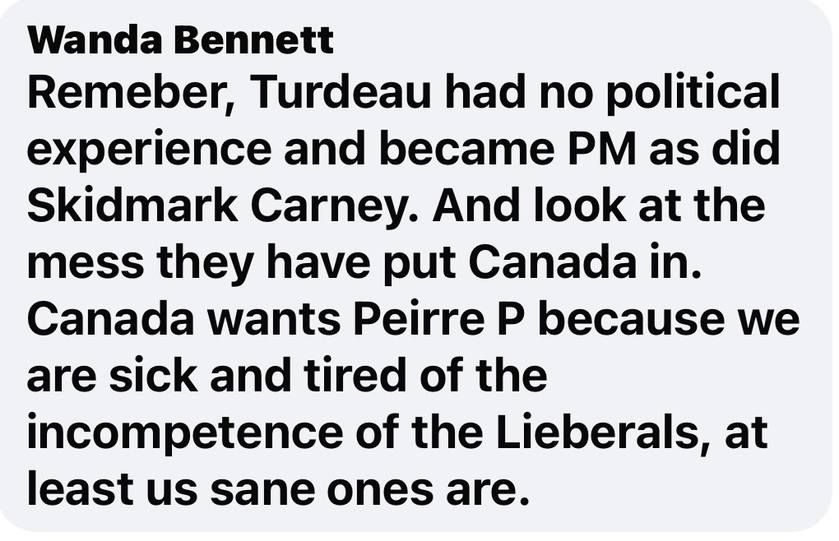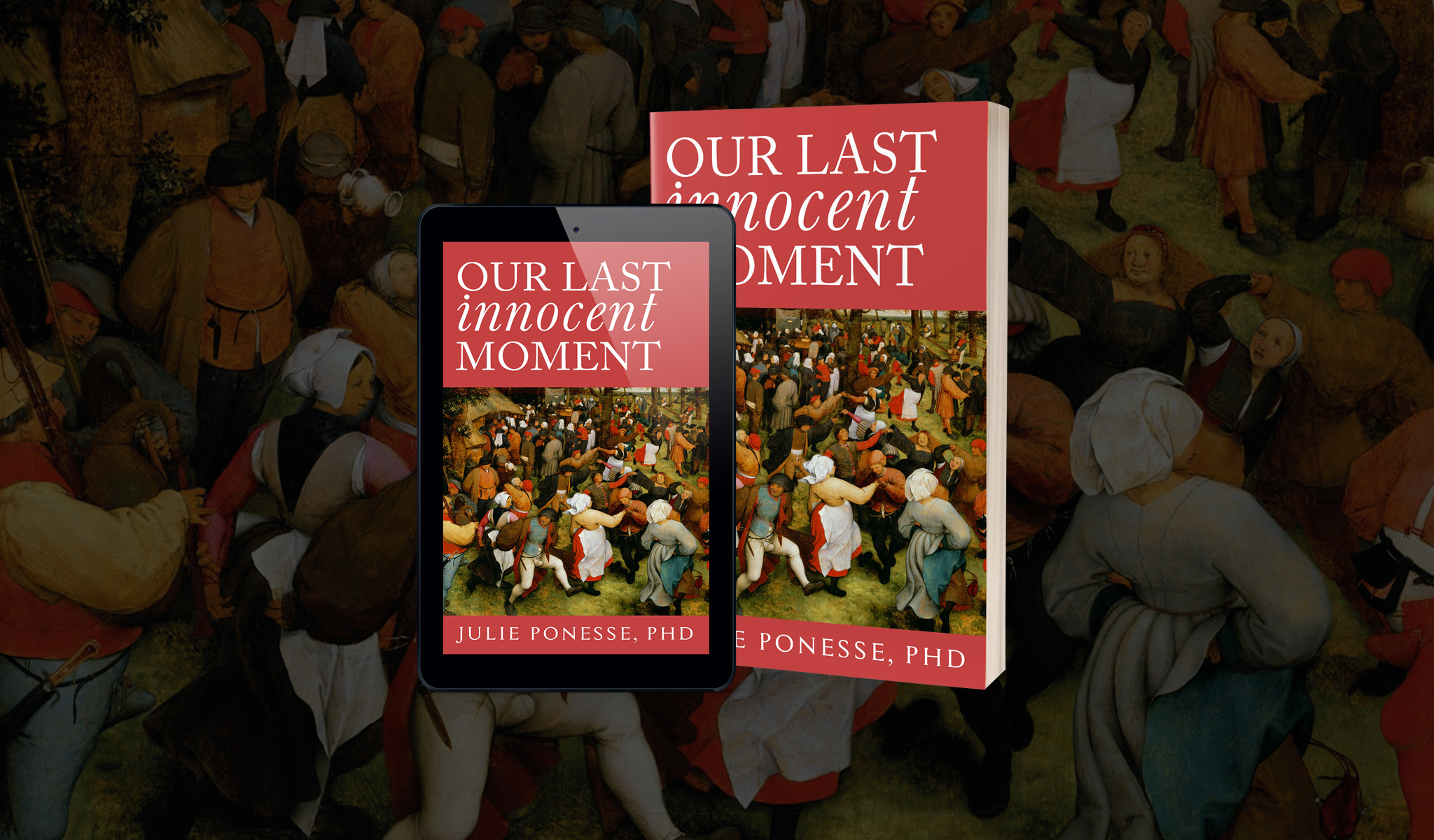
Pierre Poilievre
Pierre Poilievre is a career politician, and it's not a bad thing.
The Liberal Party loves to call itself the party of “unity,” “respect,” and “inclusion.” But when it comes to Pierre Poilievre, their actions tell a very different story.p
They mock him.
They insult him.
They dismiss his supporters.
And they smear his entire political career as if it were a crime.
Their favourite jab? That Poilievre is a “career politician” who’s done “nothing” in 20 years. They throw that label around like it’s an insult.
But here’s the part they conveniently leave out.
Jean Chrétien, their beloved Liberal icon, was also a career politician, spending 30 years in Parliament before becoming Prime Minister.
So which is it?
Is political experience a problem… or does it just depend on which party you serve?
Let’s be clear. "Career politician” just means someone has spent most of their adult life in public service, learning how the system works, how laws are made, and how governments function.
We don’t mock teachers for teaching 30 years. We don’t call a 25-year electrician a “career tradesman.” But when a Conservative dedicates two decades to Parliament, it’s suddenly shameful?
Please.
Elected in 2004 at just 25 years old, Pierre Poilievre has served as Minister for Democratic Reform, Minister of Employment and Social Development and multiple Parliamentary Secretary roles including Parliamentary Secretary to the Treasury Board and to PM Harper himself.
He didn’t just sit in the background as a backbencher. He helped shape key files on accountability, pensions, and economic policy under Stephen Harper. He sat on over 20 committee and sub committees, helping shape policy.
But more importantly, he has conviction.
Poilievre has stood for the same core values throughout his career.
Fiscal discipline. Economic freedom. Respect for working Canadians. Opposition to gatekeeping elites.
He hasn’t changed his views to win popularity. He hasn’t pandered to the media or elite institutions. What he believed in 2004, he still believes now. And that’s rare in politics.
While others rely on vague buzzwords and poll-tested platitudes, Poilievre’s slogans are clear, consistent, and tied to real policy goals, like “axe the tax,” “boots not suits," or “end the gatekeepers.” He’s not trying to sound smart in a seminar. He's trying to connect with the people who keep the country running.
Before becoming Prime Minister in 1993, Jean Chrétien was elected in 1963.
He served in every major portfolio, including Justice, Energy, Finance, and Indian Affairs.
He spent three decades climbing the ladder of power.
And Liberals loved him for it.
They called him experienced. Sharp. Tough.
No one asked, “What did he accomplish in all that time?” They assumed, rightly or wrongly, that the years meant wisdom.
Yet now those same Liberals attack Pierre Poilievre for a shorter, but equally committed public service career?
The double standard is obvious.
Let’s be honest. This isn’t about time in office.
It’s about who is allowed to be in office.
Chrétien was one of them. Poilievre is not.
Liberals adore politicians who speak in consultant-speak, attend global summits, and say all the “right” things. That’s why they embraced Mark Carney, a man with zero political experience before being handed the Prime Ministership. But he’s one of theirs, so that’s fine.
Poilievre, on the other hand, didn’t rise through elite institutions. He didn’t come from Bay Street or Davos. He’s blunt, principled, and unafraid to call out waste, corruption, and incompetence.
That’s why they hate him.
Ever since Poilievre became Conservative leader, the attacks have escalated. But since he lost his seat and began running in a by-election, they’ve become vicious.
The worst of it comes from Liberal supporters online, where every post Poilievre makes is flooded with cruelty.
“My toilet even has a seat.”
“Still grifting after 20 years of nothing.”
“Did you get your security clearance yet?”
But let’s not pretend it’s only the trolls.
When Liberal MP Bruce Fanjoy stood in Parliament and mocked Poilievre for losing his seat, and received a roaring ovation from his caucus, it was clear.
The party isn’t above joining in.
Maybe they don’t tweet the memes, but they’re laughing along.
This from a party that claims to champion civility, inclusion, and “respect for all Canadians”?
Instead of disagreeing with his policies, they dehumanize him.
Instead of engaging in debate, they try to erase him.
His haters call him angry. Divisive. An “attack dog.”
And they love to remind everyone that Poilievre was once a youth member of the Reform Party, as if being politically curious at age 20 means he's forever trapped in that era.
They act like people can’t grow, evolve, or refine their views unless, of course, they’re Liberals.
They even say he “has no chance” of winning in Alberta. A Conservative stronghold, where his message resonates deeply with everyday, working Canadians. That’s not political analysis. That’s denial.
They’re not afraid he’ll lose. They're counting in it.
They’re afraid he’ll win, again, and come back stronger.
Pierre Poilievre has been in politics for 20 years.
Jean Chrétien was in for 30, 40 if you include his years as PM.
One is smeared as a squatter.
The other is praised as a legend.
The difference isn’t experience.
It’s ideology.
It’s class.
It’s control.
Liberals preach unity and inclusion, but when someone challenges their dominance, especially someone who actually connects with working Canadians, the mask comes off.
They don’t mock Poilievre because he’s weak.
They mock him because he won’t go away.
And they know that when he gets his seat back, he’ll be exactly where they don’t want him.
Standing in their way.

How should I vote?
https://elections.ca/content.aspx?section=ele&dir=2025/48002&document=index&lang=e
That's my riding and I'll be there on voting day.
Share your opinion a reply below and start a chat
In Plain Sight, By Dr. Julie Ponesse - August 10, 2025
[Following is an excerpt from Julie Ponesse’s book, Our Last Innocent Moment.]
One of the things we have learned over the last three years is just how much 𝐫𝐞𝐠𝐮𝐥𝐚𝐭𝐨𝐫𝐲 𝐜𝐚𝐩𝐭𝐮𝐫𝐞 factored into the Covid response, how economics turned vaccine technology into an industrial profit machine. One crucial piece of evidence for this came from the Pfizer report, released last year by the FDA as part of a US court order, containing what Naomi Wolf calls “evidence of the greatest crime against humanity in the history of our species.”
The report shows massive incongruity between how the vaccines were marketed to the public and what Pfizer knew about them prior to their release to market. It shows:
-Pfizer knew their gene-based injections had negative efficacy as early as November 2020 (with the third most common side effect of the vaccine being Covid, itself)
-shortly after the vaccines came to market, Pfizer...















